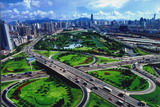
Colorful life in Shenzhen Universiade Village
Updated: 2011-08-18 09:39
(Xinhua)
|
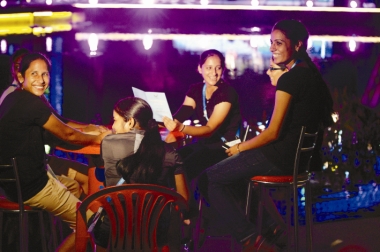 |
| Athletes take time out in the evening. |
|
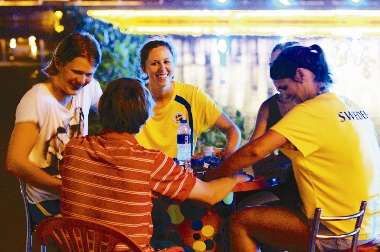 |
|
Swedish athletes relax at the music square in the Universiade Village. |
|
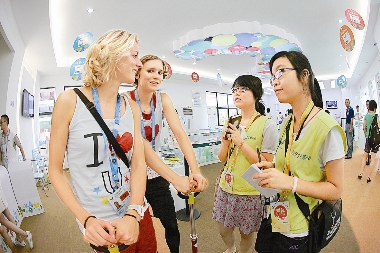 |
|
Swiss atheletes being interviewed by junior reporters in the village.? |
|
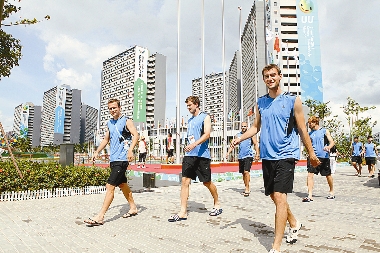 |
| Athletes go to the village canteen for dinner. |
|
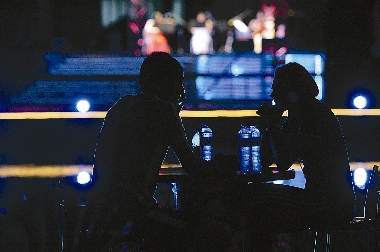 |
| Relaxing at a concert in the village. |
SHENZHEN - A band was singing pop songs on the stage excitedly, while the audiences were dancing to the music and cheering joyfully.
This is what one could find at the music plaza in Shenzhen Universiade Village at night.
Dardan Loshtaku, a Swedish volleyball athlete, has joined in this kind of concert three times since he lived in the village.
"I bring my teammates here to relax ourselves here as we are gonging to have an important but tough game tomorrow," Said Loshtaku.
In order to enrich the athletes' lives in the village and relieve their pressure, the organizers of the Universiade Shenzhen is arranging concerts every day during the ongoing Universiade.
According to Chen Xinliang, vice mayor of the village, most of the performances in the plaza are conducted by the local bands, who choose fast-paced and pop music to meet young athletes' needs.
But that's not the only choice for the athletes. In the delegation's meeting room, there are also indoor performances hitting the stage every night, such as traditional Chinese dance, Shaolin Kungfu and acrobatics.
"Universiade is not only an event for competition, but also a platform for cultural exchange," Chen said, adding that the activities are organized so that athletes from different parts of the world could learn from other cultures and strengthen understandings between each other.
Aside from concerts, the Cultural Experiencing Zone also provides a favorable place for athletes to learn knowledge and communicate with others during the games.
Exhibitions about traditional Chinese culture, sculpture and Shenzhen's development could be found here, displaying the host country's glorious culture as well as the host city's achievement since implementing the reform and opening up policy over thirty years ago.
Piyumali Premaratne, an athelete from Sri Lanka, said the exhibitions had greatly broadened her horizons.
"I follow the instructions to find here, and it really deserves. I am taking lots of pictures so that I could share with my friends after returning to my country," Premaratne said.
Some other athletes like to go the Music Therapist Center, where they could have mental decompression through listening to music.
Matthew James Swaston, swimming athlete from the Stanford University in US, took two friends there to have group music playing therapy, in which they played with African drums, looking quite relaxed.
"I spent one and a half hours here last time. After I played with the music instruments here, I felt so happy, that's why I recommend my friends to come here and have the amazing experiences together," Swaston said.
Zhang Xiaoli, director of the Music Therapy Center, said that it was an innovation to have this kind of service in Universiade. He added that since it was quite difficult to provide mental consulting services due to time limits and language obstacles, they finally came up with the idea of providing music therapy in the village, and it really works.
"Up until now, nearly 500 athletes have received the music therapy here. Some of them have even come here for five or six times, bringing lots of friends," Zhang said.
Wang Suiming, head of the Universiade village, said they hope to make the village a joyful land, modern campus and also warm home for all the athletes.
Video

Working as a Universiade volunteer
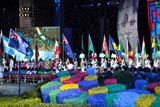
Party starts as Universiade ends

Sumptuous seafood in Shenzhen

Athletes test doping knowledge
About Shenzhen
